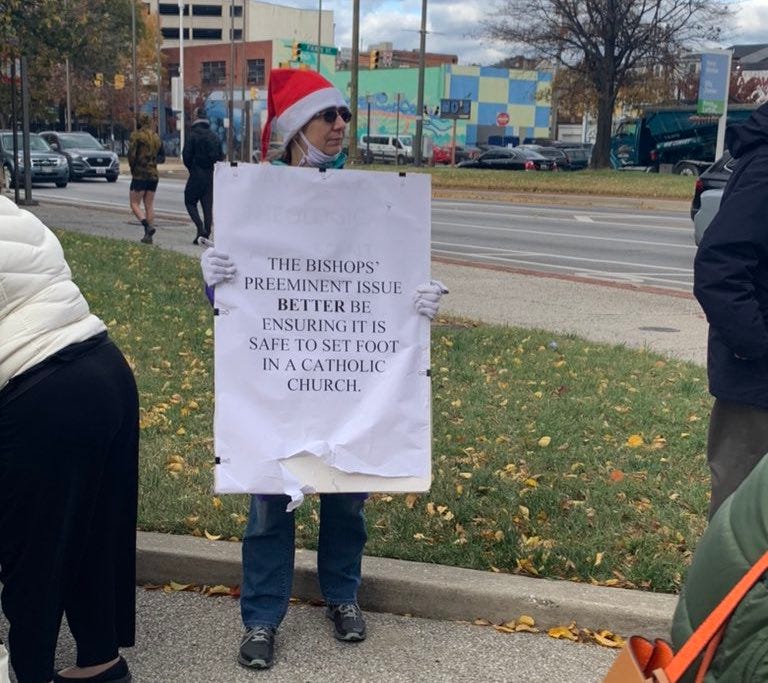Outside USCCB, dueling demonstrations on Eucharist
News: USCCB 2021 Fall Assembly
As the U.S. bishops’ conference held regional meetings and a closed-door executive session in a Baltimore hotel Monday afternoon, two groups held demonstrations outside the hotel. One group urged that bishops prohibit pro-choice politicians from receiving Holy Communion, and the other said that no one should be barred from the Eucharist.

